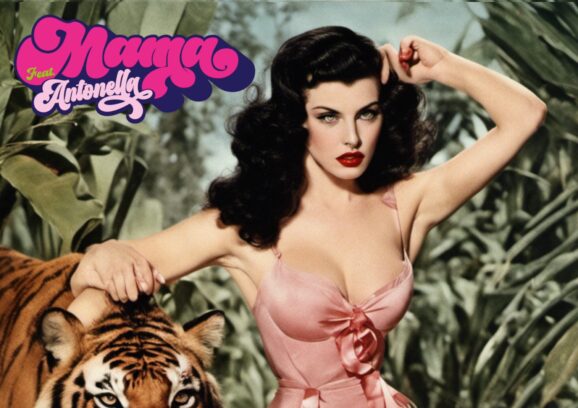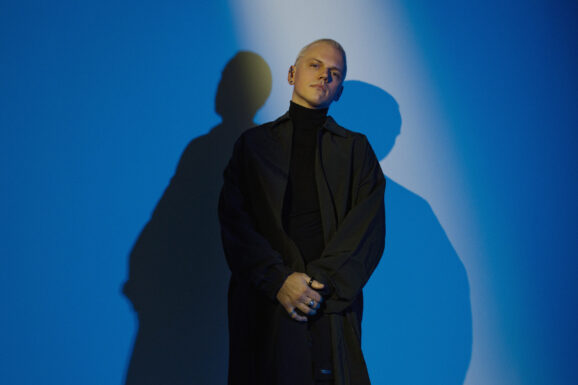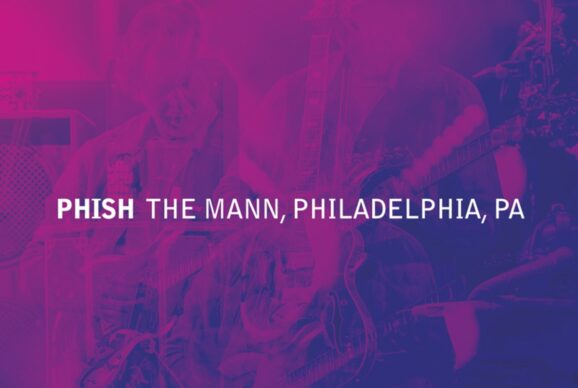 There are as many kinds of grieving as there are bottles on the bar shelf: The loud and wailing kind done at the graveside; the sloppy, sentimental kind soaked in gin and whiskey, draped across the shoulders of the folks holding you up; the pretending to be in control kind, breath-holding, eyes closed, count to ten and turn the smile back on.
There are as many kinds of grieving as there are bottles on the bar shelf: The loud and wailing kind done at the graveside; the sloppy, sentimental kind soaked in gin and whiskey, draped across the shoulders of the folks holding you up; the pretending to be in control kind, breath-holding, eyes closed, count to ten and turn the smile back on.
The kind of grieving Jason Hawk Harris does on the first single off his debut full-length album, Love & the Dark, is the kind that wakes you up at night shivering, words pouring out of your head onto the page, raw and torn from the inside like you can’t hold on anymore. “Phantom Limb” doesn’t come across as a song that was written to be performed, but as one that happened, and then needed to be shared. The single gives us a searing view of Harris’s sharp and sometimes painfully honest lyrical skill and invites us into a reality that’s often hard to handle, fraught with sorrow and regret.
Harris has been open about the events that occurred while he was writing Love & the Dark. He lost his mother to complications of alcoholism. His sister, newly diagnosed with multiple sclerosis, gave birth prematurely to a child with cerebral palsy. And in a twist that sounds almost too strange to be true, Harris’s father was sued into bankruptcy by the King of Morocco. Harris was fighting his own battles in the wake of these events, and Love & the Dark takes listeners on a journey through his hell and back as he dealt with all of it.
“Songwriting has always been a cathartic thing for me,” Harris told me in a recent interview. “It felt good to write it and to get it out, but it’s funny, returning to some of these songs, when I play them — and I haven’t played them in about a month because we’re getting revved up for the tour in September — when I come back and I play “Phantom Limb” or something, it’s like, ‘Oh gosh, I forgot how raw this is.’ It’s still very raw and I’m learning how to sing these songs to where I can still convey the emotion of the song but at the same time, not do it so much to where I lose it. And that’s a common thread throughout a lot of these songs.”
Harris continues that trend of raw reflection in “Giving In,” speaking to the heartbreak of wanting to break out of the grasp of alcohol and not being able to achieve that goal. “Even though I’ve struggled with addiction, alcohol was never my drug of choice,” says Harris. “That song, I think, was born of my experience growing up with an alcoholic mother who was always wanting to quit and always trying to quit, and always kind of unable to get over the hump. She was unlike most alcoholics because she’d go on a bender and you could talk to her. You could be like, ‘Mom, you shouldn’t be doing this,’ and she’d agree and ask you to pray for her, and she’d go to a meeting, get through one day without alcohol, talk to her sponsor, and then the next night she’d have an entire two or three bottles of wine. I think a lot of people in this country still don’t see that alcohol is an addiction, it’s a disease, and I really felt that way watching my mom just continue to want to stop so badly, to see that desire in her, and not be able to do it. Ultimately, this was something she was continuing to do even when people told her she was going to die if you keep doing it. And she did die. With ‘Giving In,’ I think one thing I tried to make sense of this deep sense of grief that I felt from losing her is by trying to carry her pain a little bit. Trying to understand what she’d been through. She had a rough life, and I think what’s amazing is that she was able to protect me in this weird way. She was a great mom, she was drinking a lot and it drove me crazy and pissed me off and we had a complicated relationship, but ultimately I think she really protected me from a lot. I loved her for that and she was a really great mom.
“Where I get emotional singing that song is in the bridge in the last part where it’s like, ‘And when I think your little heart is set, I can feel your hands on my shaky chest, open up my eyes and my cheeks are wet.’ My parents stayed together the whole time while she was an alcoholic, so I guess ‘Giving In’ is about my parents’ relationship. They were fighting it together until the bitter end, so much so that they fought it all the way to the grave. That song is really special to me.”
Despite the dark themes, Love & the Dark is anything but a downer of an album. The opening track, “The Smoke and the Stars” starts things off on an ethereal, almost psychedelic note before settling into a ballad that weaves threads of traditional country with seventies folk. “I’m Afraid” is high-speed gospel fury that sounds like it would be the perfect soundtrack to a Southern Baptist-style revival held at CBGB’s. The video for the upbeat honky-tonk tune “Cussing at the Light” features an otherwise typical-looking suburban couple decked out in corpse paint as they stumble drunkenly through an ordinary day. It’s a perfect metaphor for what life can be like in an alcoholic relationship: Laughing together, playing, walking in the park, and every now and then, collapsing on the sidewalk, unable to get up. The record is a Venn diagram of country, rockabilly, folk, and even a bit of 90s post-grunge radio rock, with Harris sitting firmly in the center.
Love & the Dark is without a doubt a country record, but it’s not the kind we’re used to hearing these days piped out of gas station speakers and spewing from the cockpits of big pickup trucks and Mustangs with camo seat covers and rebel flag stickers on the windows. At a time when much of the country music on the air sounds more like prefab pop with contrived Southern accents and tough-guy bravado, Jason Hawk Harris delivers the ghost of Hank Williams with a sharp edge and a few good stories to tell.
“I think that people have turned country music into kind of a caricature, like they do at theme parks with the exaggerated features… It’s like, yeah, there are elements there that are similar to the country music genre, but like that chin is way too big, your forehead isn’t that big. I think there are a time and a place for caricature, but making it mainstream — to me, that is not the time or place.
“There’s also a debate around the lifestyle of country, the genre of country, and that’s an important distinction too. The ‘authenticity’ in mainstream country these days is all about talking about how they grew up on a farm, or they grew up eating grits in East Texas, and that’s fine and everything, but now I think there’s just a bunch of people saying, ‘Look how country I am. I’m very, very country. Look at how country I am. I went hunting, and you better believe I got a big-ass American flag. I wish country music would kind fucking correct already, but it’s a big machine and makes a lot of money. I don’t have any desire to do [be the one to correct it]; I’m influenced by so many kinds of music and country is just one of them. It just so happens that when I sing, because of my Texas background, what feels natural to me is that country music cadence and vibe. When I was growing up, my favorite band was Queen and I listened to a bunch of punk music. I don’t want to be the crusader for real country music. I’d rather just point to guys like Tyler Childers and Sturgill Simpson and Brandi Carlyle, who are doing great, great country music. They’re the torch holders. Let me do my weird thing.”









